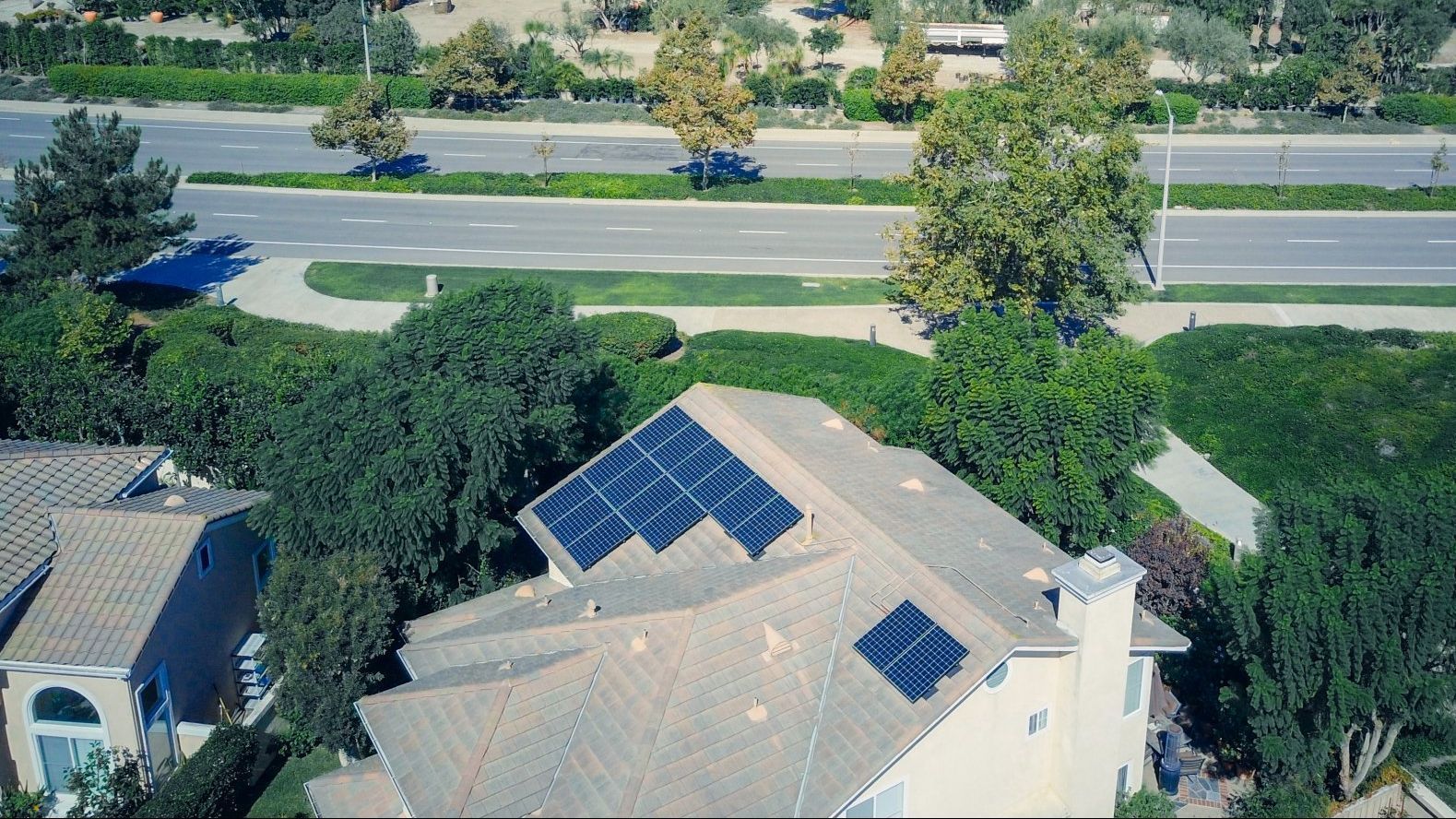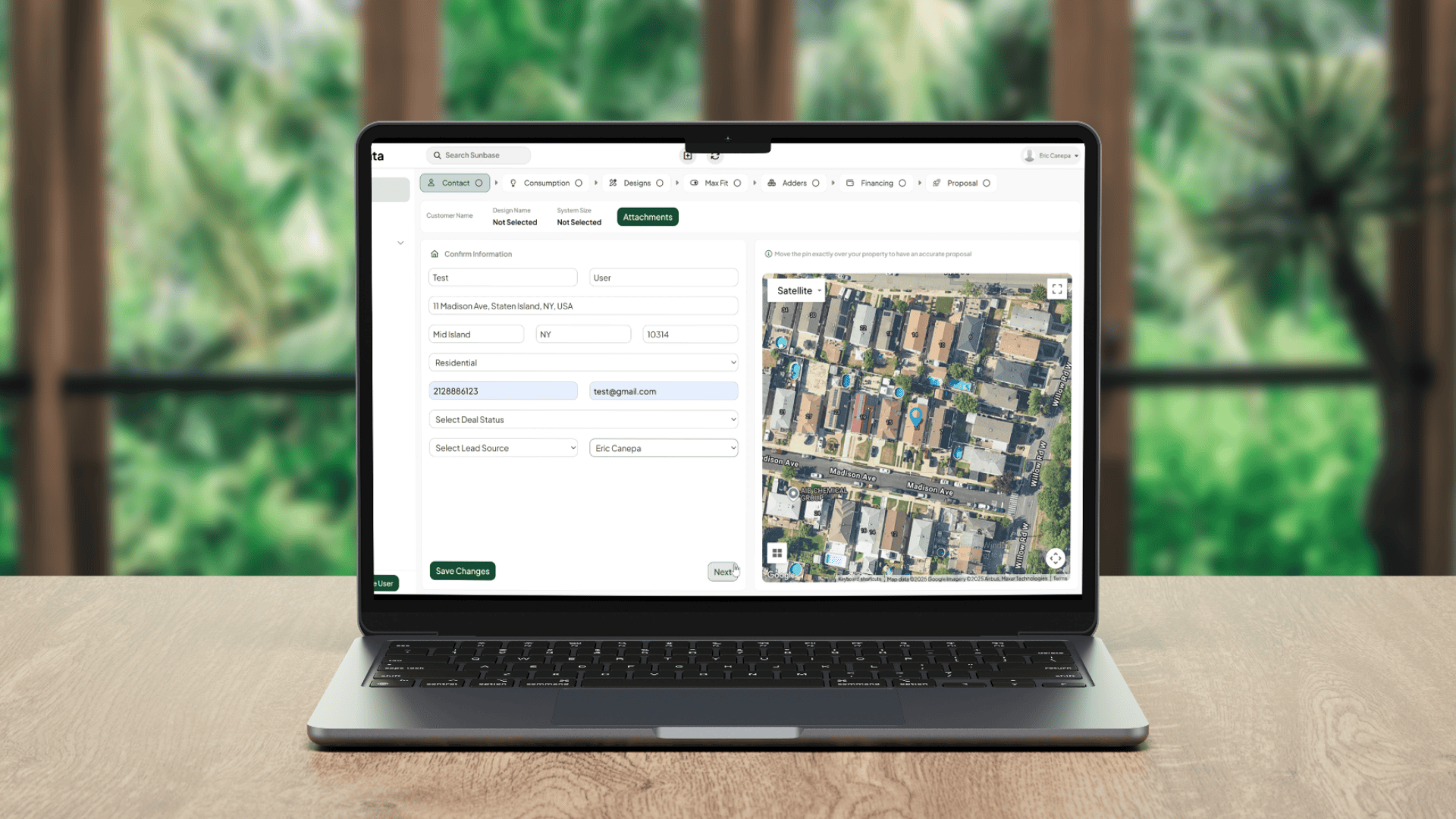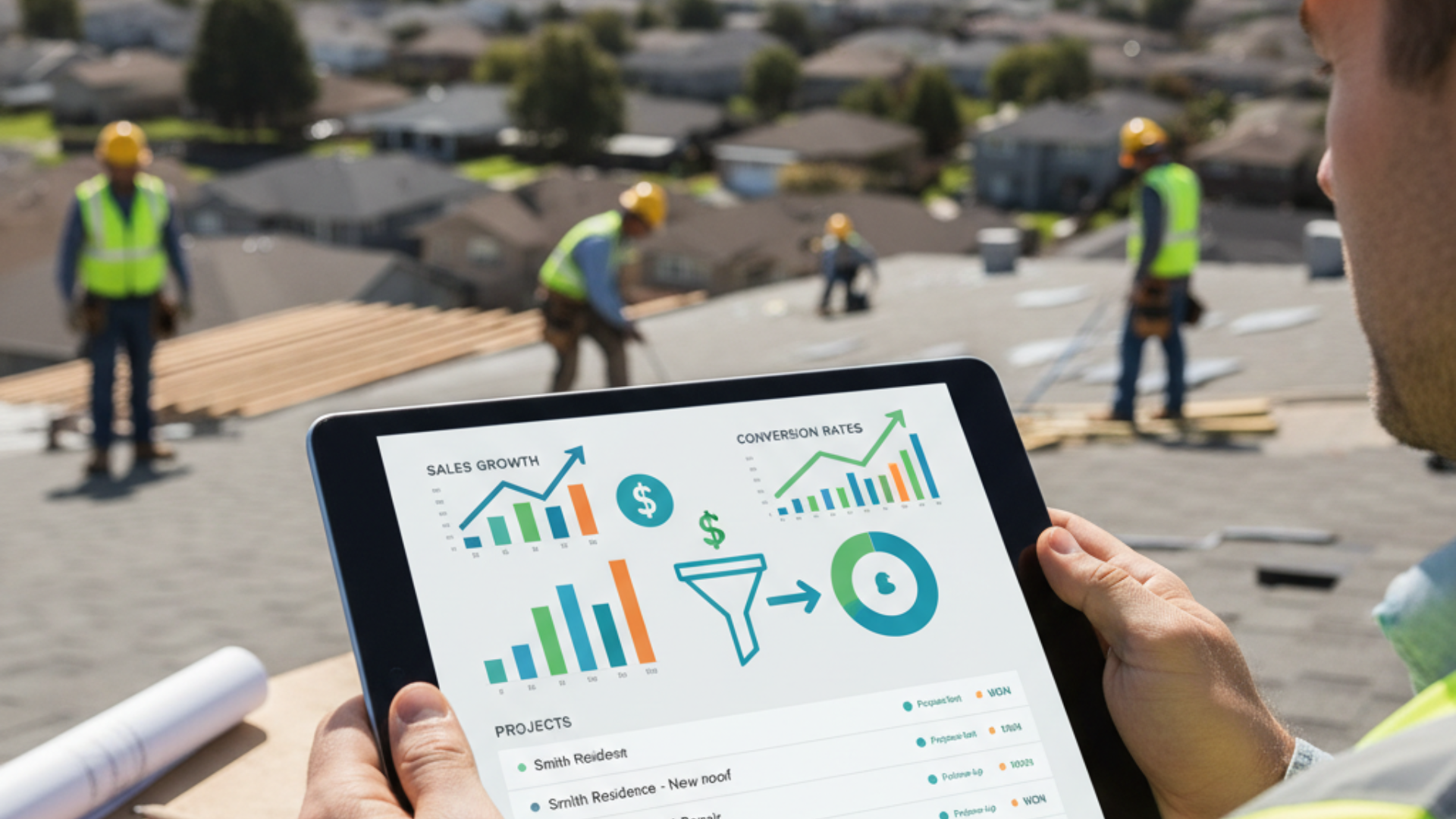August 30, 2023
If you already have solar panels in your home and are planning to sell your property, you might have a couple of questions regarding selling your home with solar panels. Does having a solar system affect real estate? What happens to your solar lease if you sell your home with solar panels?
Through this article, you will discover all you need to know while selling a home with solar panels.
Do Solar Panel Systems Increase House Value?
Overall, yes. Having a solar power system installed is one of the best ways to go green while saving money, hence can become a selling point. Solar panels are designed to not only lower energy bills but also use nature's resources, sunlight to power one's house instead of relying on non-renewable energy sources.
If done right and professionally by a solar company, these residential solar panels can enhance your home's appearance and hence attract more buyers and agents.
Another thing you should note is that according to studies by Lawrence Berkeley National Laboratory, the effect of having solar panels in homes has a negligible impact (about 1%) on real estate prices. This means that buyers are willing to overlook the existence of solar panels when they consider purchasing homes with these systems installed in them.
Even though there might be potential buyers or agents who are overlooking the fact that they will additionally gain solar panels which will save them a lot of money, in conclusion, having a solar panel installation in one's house has the potential of increasing the value of one's house.
Selling a Home with a Leased Solar Panel System
When it comes time to market and sell your home, you may be wondering how the presence of a leased solar Photovoltaic (PV) system will affect the process. In general, having an existing solar PV system can provide several advantages but there are also considerations that you should keep in mind. Here is what you need to know about selling a home with an existing leased solar PV system-
Advantages of Selling a Home with a Solar Lease
Having a leased solar panel system installed on your home provides several advantages when it comes to selling the property. One advantage is that it can act as an attractive feature for potential buyers, as they will be able to benefit from lower energy bills without having to invest in the initial solar panel installation costs. Additionally, solar leases can increase the value of your home when compared to similar homes in the area.
Disadvantages of Selling a Home with a Solar Lease
While there are advantages to having a leased solar system, it is important to be aware of the potential downsides. One such downside is that you will need to transfer the lease from your name to the new homeowner's name. This can add additional steps and complexity to closing the sale of your home. Additionally, depending on the terms of your solar panel lease agreement, you may also be responsible for paying any remaining costs due on the lease, such as installation fees or service charges.
Negotiating a Leased Solar PV System When Selling Your Home
When selling your home with an existing leased solar panel system, there are two ways you can proceed: you can either transfer the lease agreement to the new owner or you can buy out the contract. When transferring the lease, you will need to provide all of the necessary documents such as copies of your credit report and payment history to the current leasing company in order for them to approve a transfer. Additionally, if a buyer is interested in buying out your solar PV system's lease, then you will need to negotiate the terms of the buyout with the current leasing company.
Problems You May Expect When Selling a House With Solar Panels
While selling homes with solar energy systems installed may be beneficial in some cases, there are also potential problems that may arise from this kind of situation.
Maintenance Responsibilities for Leased Systems:
When you sell a house with leased solar panels, you'll likely face challenges related to maintenance. Since the property is still under a lease agreement with the solar company, you'll need to coordinate with them regarding any necessary repairs or replacements. This can be complex, as it requires communication and coordination between you as the seller, the buyer, and the solar installer/ leasing company to ensure the solar system remains in proper working condition.
Complex Removal Process:
Removing a solar power system from your home before selling it can be a major hurdle. This process can be more expensive and time-consuming than installing solar panels. Especially if you already have a potential buyer lined up, the removal process could delay the sale and create a negative impact on the transaction. Buyers might be deterred by the inconvenience and additional costs associated with removing the system.
Lease Expiry and Financial Impact:
Leased solar panels often come with a fixed term, and when that term expires, the homeowner faces a decision. If you're not ready to buy out the solar system or renew the lease, you could potentially lose out on the investment you've made so far. This situation could lead to a significant financial loss if you're not prepared to commit to either purchasing the system or renewing the lease.
Higher Costs for Removal and Reinstallation:
The process of removing and then installing solar power systems for resale can be expensive. Due to the technical expertise required and potential damage that can occur during removal, reinstalling the system might result in higher costs. As a result, many homeowners opt to leave the system in place, as it's often more cost-effective to do so, and it can potentially enhance the property's value in the eyes of buyers.
Complex Leasing Arrangements:
Leasing companies can be selective about the properties on which they install their solar systems. If your home has already been listed with a different leasing company for a solar installation, it might deter other leasing companies from getting involved. This can lead to difficulties in finding a suitable leasing company willing to take over the system, potentially causing delays in the sales process.

Navigating the Real Estate Market: Selling Your House with Solar Panels
Selling your house with a solar energy system can be a rewarding endeavor that adds value to both your property and the environment. As the market trend leans towards sustainable living, having solar panels installed on your property can significantly enhance its appeal to potential buyers.
When you're considering selling a house with a solar energy system, understanding the nuances of different ownership scenarios is essential. Whether you have a financed solar energy system or own solar panels outright, these factors can influence the selling process.
For homeowners with a solar loan or financed solar panels, transparency is key. Buyers need to be informed about any ongoing financial obligations related to the solar system. Collaborating with experienced solar installers to provide accurate information can build trust with potential buyers. Emphasizing the potential long-term energy savings that come with a solar energy system can also be a persuasive selling point.
If you own the solar panels outright, you have the advantage of being able to market the property as an energy-efficient haven with reduced utility costs. Highlighting the eco-friendly features and showcasing how the solar energy system has positively impacted your energy bills can attract environmentally-conscious buyers.
However, it's important to address potential concerns, such as maintenance and any transferable warranties, to ensure a smooth transaction. Having documentation on the installation, performance, and warranty details of the solar panels can instill confidence in buyers.
How do I sell my home with Solar Panels?
Selling a home with solar panels involves a series of strategic steps to ensure a smooth and successful process. Here's a detailed guide on how to sell your home with solar panels:
Gather Documentation:
Collect all documents related to your solar panel installation, including warranties, maintenance records, and any contracts (e.g., power purchase agreement or lease agreement).
Evaluate the Solar System:
Assess the condition and performance of your solar panels. If needed, consider getting a professional inspection to address any maintenance or repair needs before listing the property.
Certification by Energy Star:
Apply for Energy Star certification if applicable. This can add value to your property by ensuring potential buyers that your solar energy system meets specific energy efficiency standards. This certification can also entitle the buyer to certain warranties and benefits.
Highlight Energy Savings:
Emphasize the benefits of lower energy costs to potential buyers. Provide them with estimated savings from the solar panels, showcasing how the system contributes to a more environmentally friendly and cost-effective lifestyle.
Determine Ownership Structure:
Clarify whether you own the solar panels outright or have a power purchase agreement or lease agreement with a solar company. This information should be communicated transparently to potential buyers.
Inform Your Real Estate Agent:
Work with a real estate agent experienced in selling properties with solar panels. They can effectively market the energy-saving features and advantages of your home, attracting eco-conscious buyers.
Adjust the Listing Price:
If you own solar panels, consider factoring in the value of the solar energy system when determining your listing price. Highlighting the long-term savings potential can justify a higher asking price.
Marketing Strategy:
Incorporate the presence of solar panels into your marketing materials, both online and offline. Use keywords like "lower energy costs" and "solar-powered home" to catch potential buyers' attention.
Educate Buyers:
During showings or open houses, take the opportunity to educate potential buyers about the benefits of solar panels, including reduced energy bills and environmental impact.
Transfer of Ownership:
If you own the solar panels, communicate clearly how the transfer of ownership will occur. Provide the buyer with relevant documentation and ensure they understand any warranties or agreements in place.
Disclose Lease or Agreement Terms:
If you have a power purchase agreement or lease, clearly explain the terms to potential buyers. Transparency is essential to avoid any misunderstandings during the sale.
Negotiation Phase:
During negotiations, emphasize the advantages of solar panels as part of your property. Highlight the positive impact on energy costs and the environment as valuable selling points.
Closing Process:
Collaborate with your real estate agent, legal counsel, and any relevant parties to ensure a smooth closing process that addresses the solar panel ownership and benefits.
Conclusion
In conclusion, selling a house with owned solar panels can be a strategic advantage in today's environmentally conscious real estate market. While there are considerations and potential challenges, such as maintenance responsibilities and understanding lease terms, the benefits often outweigh the drawbacks. Solar panels enhance property value, attract eco-conscious buyers, and offer long-term energy savings.
Collaborating with experienced solar installers and transparently sharing documentation can foster trust with potential buyers. By highlighting energy efficiency, lower utility costs, and the positive environmental impact, homeowners can effectively navigate the process of selling a home with owned solar panels, ultimately securing a smoother and more rewarding transaction.
Sunbase helps solar companies succeed through a suite of Solar CRM tools! If you are a solar company, book your free demo or an appointment by contacting us here!
One Platform. Zero Chaos. Run Your Entire Business in One Place.
Sunbase replaces your CRM, proposals, scheduling, job tracking, and reporting tools — all inside one clean, connected platform.
About Sunbase
The All-In-One Platform to Run Your Entire Business
Sunbase helps you organize operations, streamline daily workflows, and manage everything - from first customer contact to final project deliver- in one connected system.
Our Mission
- Organize your business.
- Optimize your workflow.
- Automate what slows you down.
Why Businesses Choose Sunbase
One Connected Workflow
Replace scattered tools and manual processes with a single platform that brings together your team, tasks, customers, jobs, and performance data.
🌎 Global Presence
Serving the United States, Canada, India, LATAM, Australia, and 10+ international markets.
👥 11,000+ Users
Trusted by contractors, installers, project managers, sales teams, and field technicians.
🏗️ Built for All Sizes
From small contracting teams to fast-growing enterprises, Sunbase adapts to your workflow.
Useful Links For You
Stop Managing Your Business Manually. Automate It.
Sunbase automates workflows, reduces mistakes, and helps your team get more done - without hiring extra staff or juggling multiple tools.











